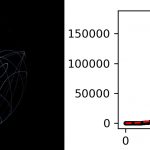Umberto Biccari, Ana Navarro-Quiles, Enrique Zuazua. Stochastic optimization methods for the simultaneous control of parameter-dependent systems (2020)
Abstract. We address the application of stochastic optimization methods for the simultaneous control of parameter-dependent systems. In particular, we focus on the classical Stochastic Gradient Descent (SGD) approach of Robbins and Monro, and on the recently developed Continuous Stochastic Gradient (CSG) algorithm. We consider the problem of computing simultaneous controls through the minimization of a cost functional defined as the superposition of individual costs for each realization of the system. We compare the performances of these stochastic approaches, in terms of their computational complexity, with those of the more classical Gradient Descent (GD) and Conjugate Gradient (CG) algorithms, and we discuss the advantages and disadvantages of each methodology. In agreement with well-established results in the machine learning context, we show how the SGD and CSG algorithms can significantly reduce the computational burden when treating control problems depending on a large amount of parameters. This is corroborated by numerical experiments.

